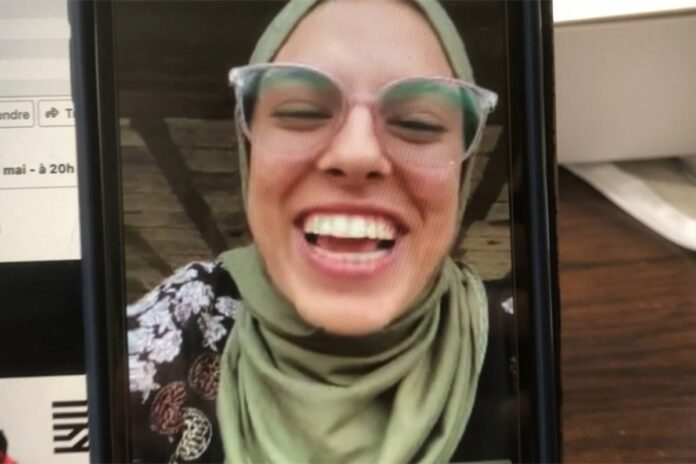Fatma Hassona, a Palestinian photojournalist who is the protagonist of Sepideh Farsi’s documentary Put Your Soul on Your Hand and Walk, has been killed by an Israeli missile strike in Gaza. She was 25.
Put Your Soul on Your Hand and Walk is set to screen as part of ACID (Association du Cinéma Indépendant pour sa Diffusion), a parallel section promoting independent film at next month’s Cannes Film Festival.
In a statement to The Independent, the organizers of ACID said: “We, filmmakers and members of the ACID team, met Fatma Hassona when we discovered Sepideh Farsi’s film Put Your Soul on Your Hand and Walk during the Cannes programme.
“Her smile was as magical as her tenacity: bearing witness, photographing Gaza, distributing food despite the bombs, mourning and hunger. We heard her story, we rejoiced at each of her appearances to see her alive, we feared for her. Yesterday, we were shocked to learn that an Israeli missile had targeted her building, killing Fatem and her family.
“We had watched and programmed a film in which this young woman’s life force seemed like a miracle. This is no longer the same film that we are going to support and present in all theaters, starting with Cannes. All of us, filmmakers and spectators alike, must be worthy of her light.”
In an additional statement, Farsi described how making contact with Hassona had been invaluable for the Iranian filmmaker’s documentary about Gaza.
.jpeg)
“I got to know her through a Palestinian friend in Cairo, while I was desperately searching for a way to reach Gaza, while hitting blocked roads, seeking the answer to a question both simple and complex,” said Farsi.
“How does one survive in Gaza, undersiege for all those years? What is the daily life of Palestinian people under war? What is it that Israel wishes to erase in this handful of square kilometers, with so many bombs and missiles?
“I, who had just finished a movie, The Siren, about another war, the one between Iraq and Iran. I, who could still feel the distant echo of the explosion’s shockwaves ringing in my ears, and dust in the back of my throat, from my Iranian teenage-hood. I wanted to know how the Gazans resisted to all of this, what they were going through… I could not find the answer in news and media. I wanted to hear their words unmediated. I wanted to be in Gaza. Something my ‘born in Iran’ stamped French passport made inconceivable for Egyptian administration and Israeli occupation.

Get Apple TV+ for £2.99/month for 3 months
Offer ends 24 April 2025. £2.99/month for first 3 months, then £8.99/month. Terms apply.
ADVERTISEMENT. If you sign up to this service we will earn commission. This revenue helps to fund journalism across The Independent.

Get Apple TV+ for £2.99/month for 3 months
Offer ends 24 April 2025. £2.99/month for first 3 months, then £8.99/month. Terms apply.
ADVERTISEMENT. If you sign up to this service we will earn commission. This revenue helps to fund journalism across The Independent.
“From our first conversation, I grabbed my camera and started filming: our exchanges, Fatem and I, what was going on around her, asking her to bring me to a window, whether of her house or her shelter, depending on where she was, for me to see through the window. And so, Fatem became my eyes in Gaza, and I, a window open on the world, for her. I filmed, catching the moments offered by our video calls, what Fatem was sharing with me, fiery and full of life. I filmed her laughs, her tears, her hopes and her despair. I followed my instinct. Without knowing beforehand where those images would lead us. Such is the beauty of cinema. The beauty of life.”
The war, now in its 18th month, started when Hamas-led militants stormed into Israel on October 7, 2023, killing some 1,200 people, and taking 251 others hostage. The group still holds 59 captives — 24 of whom are believed to be alive.
Israel’s retaliatory offensive in the territory has killed over 50,000 Palestinians, mostly women and children, according to Gaza’s Health Ministry.



